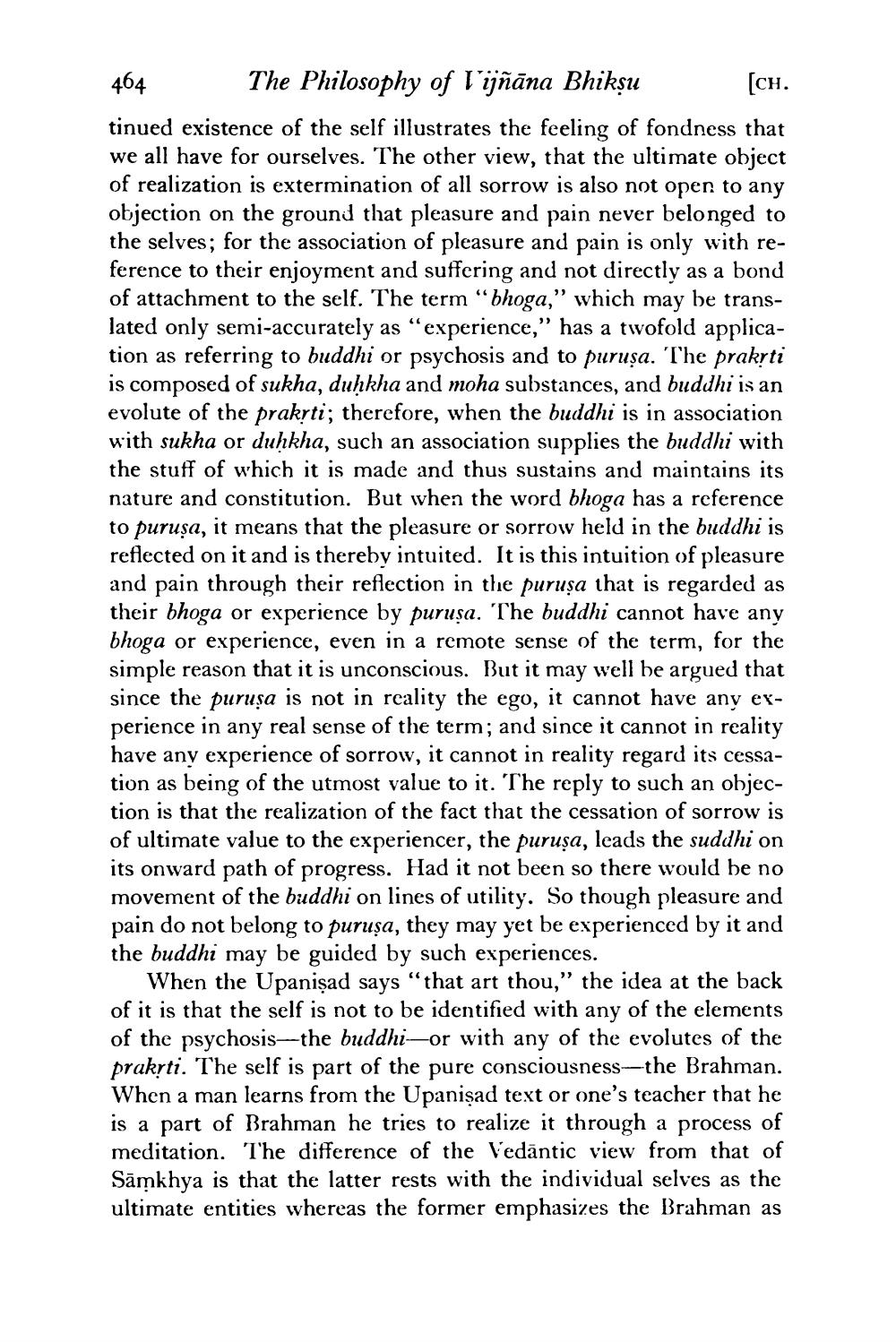________________
464 The Philosophy of l'ijñāna Bhikṣu [ch.
CH. tinued existence of the self illustrates the feeling of fondness that we all have for ourselves. The other view, that the ultimate object of realization is extermination of all sorrow is also not open to any objection on the ground that pleasure and pain never belonged to the selves; for the association of pleasure and pain is only with reference to their enjoyment and suffering and not directly as a bond of attachment to the self. The term "bhoga," which may be translated only semi-accurately as “experience," has a twofold application as referring to buddhi or psychosis and to puruṣa. The prakyti is composed of sukha, duḥkha and moha substances, and buddhi is an evolute of the prakrti; therefore, when the buddhi is in association with sukha or duhkha, such an association supplies the buddhi with the stuff of which it is made and thus sustains and maintains its nature and constitution. But when the word bhoga has a reference to puruṣa, it means that the pleasure or sorrow held in the buddhi is reflected on it and is thereby intuited. It is this intuition of pleasure and pain through their reflection in the puruşa that is regarded as their bhoga or experience by purusa. The buddhi cannot have any bhoga or experience, even in a remote sense of the term, for the simple reason that it is unconscious. But it may well be argued that since the purusa is not in reality the ego, it cannot have any experience in any real sense of the term; and since it cannot in reality have any experience of sorrow, it cannot in reality regard its cessation as being of the utmost value to it. The reply to such an objection is that the realization of the fact that the cessation of sorrow is of ultimate value to the experiencer, the puruṣa, leads the suddhi on its onward path of progress. Had it not been so there would be no movement of the buddhi on lines of utility. So though pleasure and pain do not belong to puruşa, they may yet be experienced by it and the buddhi may be guided by such experiences.
When the Upanişad says "that art thou," the idea at the back of it is that the self is not to be identified with any of the elements of the psychosis--the buddhi—or with any of the evolutes of the prakrti. The self is part of the pure consciousness—the Brahman.
Then a man learns from the Upanisad text or one's teacher that he is a part of Brahman he tries to realize it through a process of meditation. The difference of the l'edāntic view from that of Sāmkhya is that the latter rests with the individual selves as the ultimate entities whereas the former emphasizes the Brahman as




